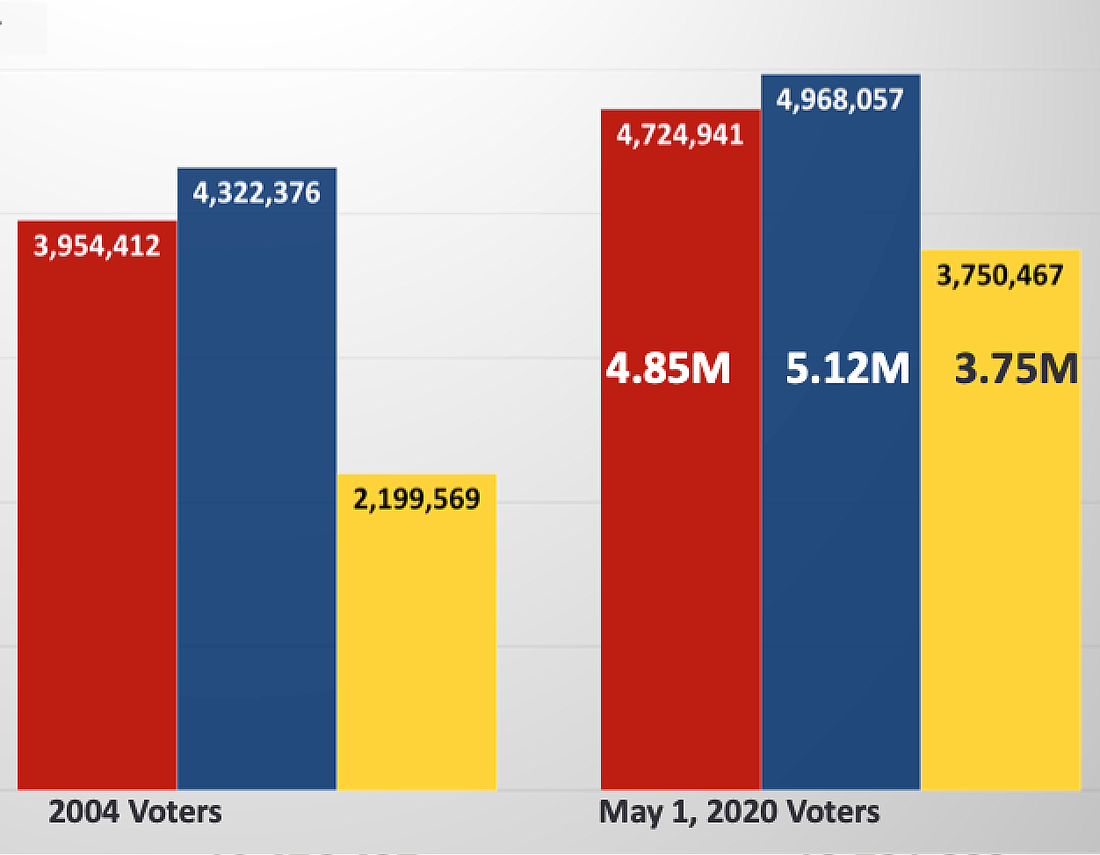- April 18, 2024
-
-
Loading

Loading

With just two weeks remaining before the deadline for candidates to qualify to run in the 2020 elections, the Flagler Tiger Bay Club invited Marian Johnson, executive director of the Florida Chamber Political Institute, to discuss political trends. She identified the surge of NPA voters, the struggle to fundraise due to COVID-19, and she discussed four amendments that appear designed to drive turnout.
Voters registering as NPA, no party affiliation, have increased dramatically in Florida, to the point that Johnson predicts NPAs could outnumber Republicans after another two election cycles. The surge began in 1994, coinciding with an influx of people moving to Florida from the Northeast United States, she said.
Since 2010, over 5 million people have registered to vote in Florida, and 38% are NPA. By comparison, 33% are Democrat and 29% Republican. Demographically speaking, 56% of new voters are white, 21% Hispanic and 13% black.
Millennials tend to register as NPAs also, and Johnson predicts Millennial turnout will surge from around 35% previously to around 45% this year.
Four amendments have been approved for the ballot, based on citizen initiatives, and all could drive turnout.
One amendment would require any voter to first be a citizen.
Another would raise the minimum wage to $15 by 2026. Attorney John Morgan is behind the minimum wage amendment, and Johnson said polls indicate that this could pass, but support could be slipping.
“As it phases in, it takes other benefits away,” she said. “The raise that they get in [wages] doesn’t offset losing food stamps and those kinds of things.”
An unknown is how COVID-19’s spike in the unemployment rate could impact voters’ views on a minimum wage.
A third amendment is one that would allow all voters, regardless of party affiliation, to participate in primaries for key state races, including governor and the Legislature (but not local races).
Fourth, there is an amendment that would require future amendments to be passed in two successive elections, not just one.
“Every one of these could be used as a voter turnout mechanism, and that is what all the elections are about,” Johnson said.
Nobody planned for COVID-19, and that has left some incumbent candidates in the state Legislature short in campaign financing, Johnson said.
“I’ve had some frantic calls from candidates,” she said.
Some decided to wait till after session was over, and then COVID-19 hit, and many people were laid off.
“How do you call a person who’s just been laid off, and ask for a contribution?” Johnson said. “It has affected a lot of the campaigns.”
She added: “The ones who have absolutely fared the best are those who would not let go, and they raised money all the time.”
Another statewide trend is early voting, whether in person or by mail. In 2004, 69% of votes were cast on election day, 31% early. In 2018, it was the opposite.